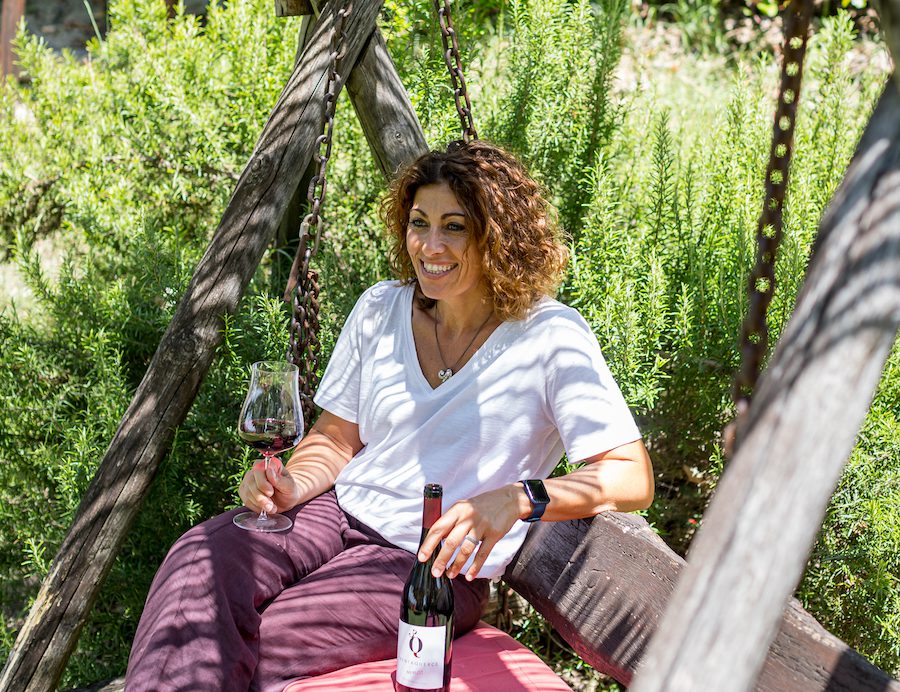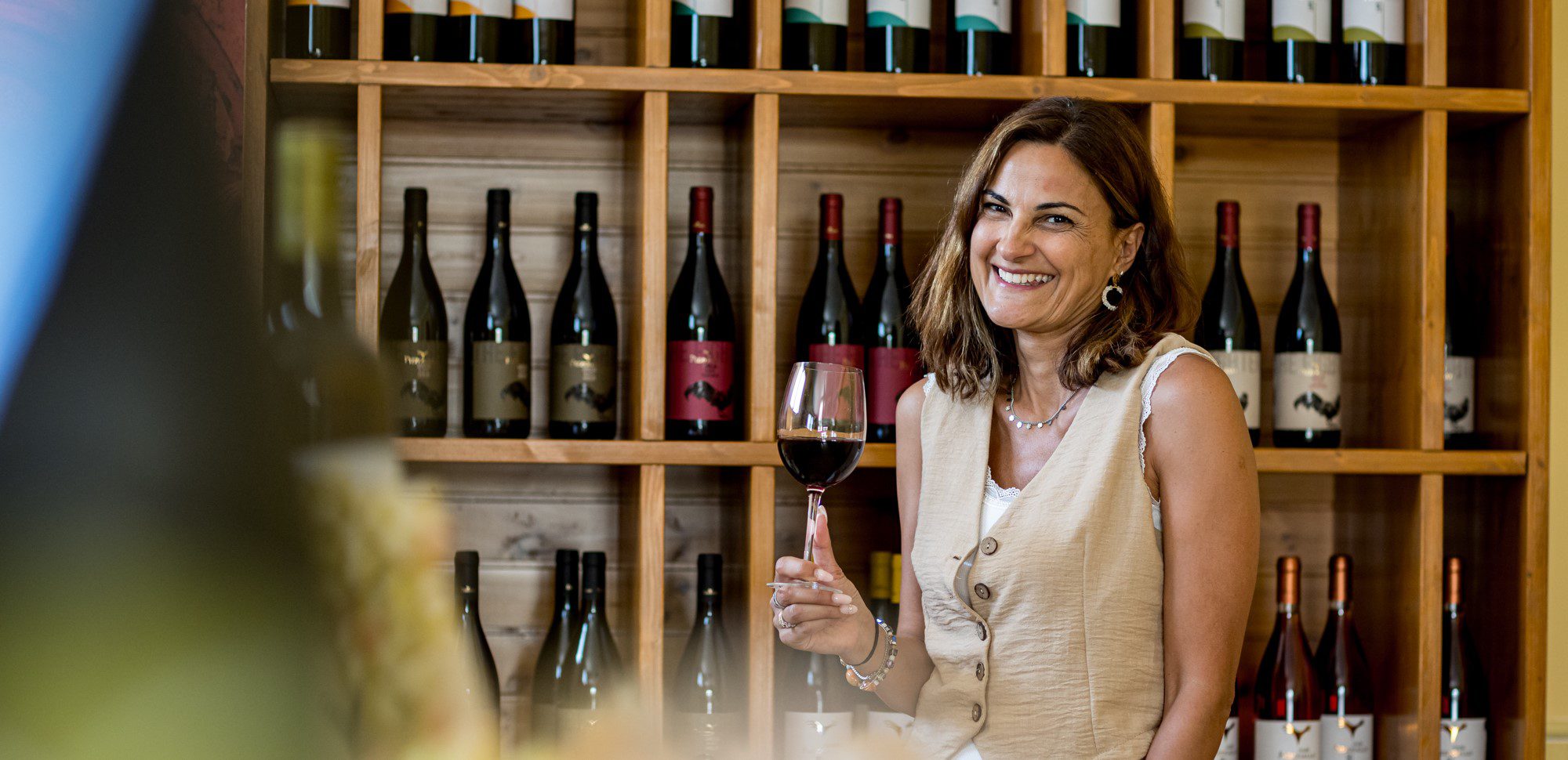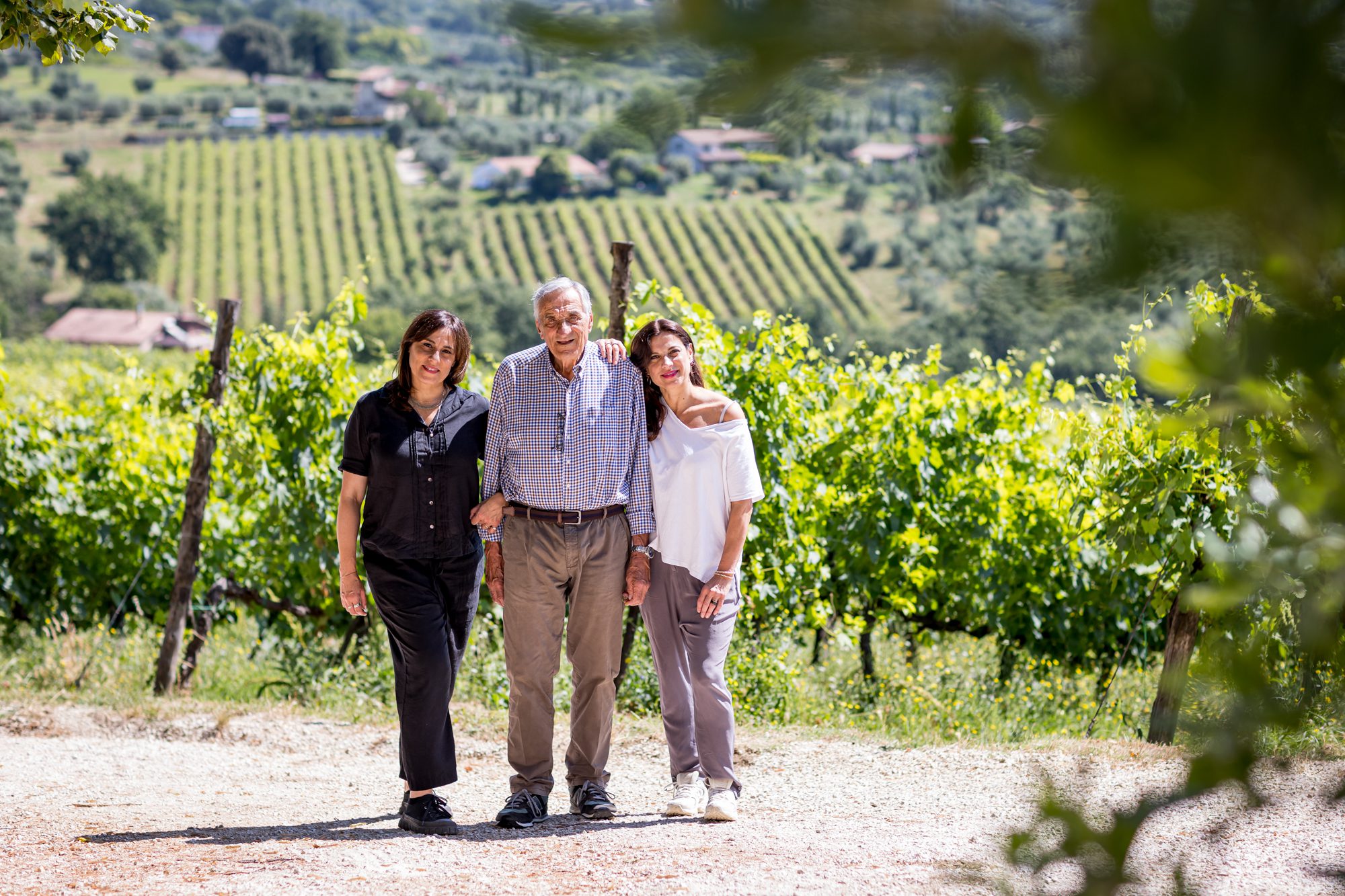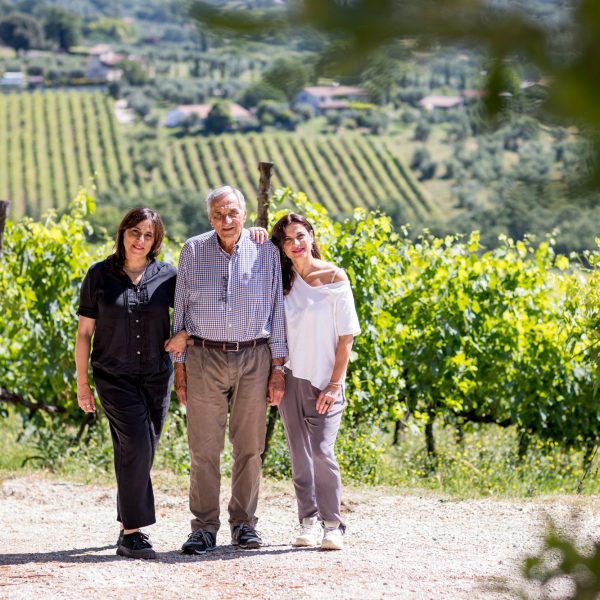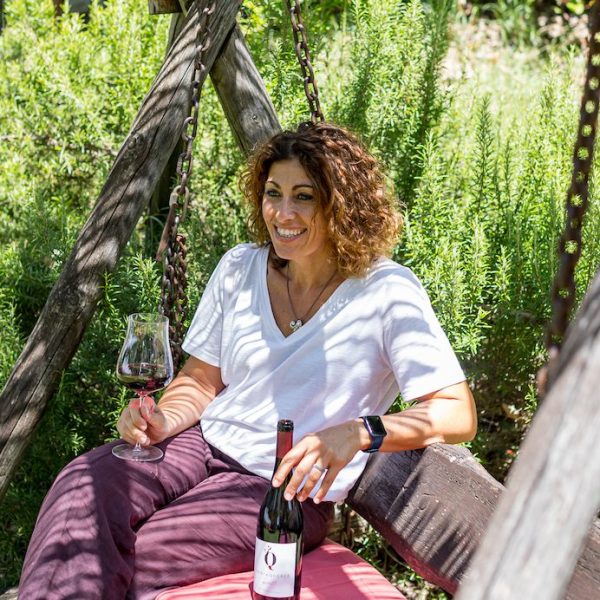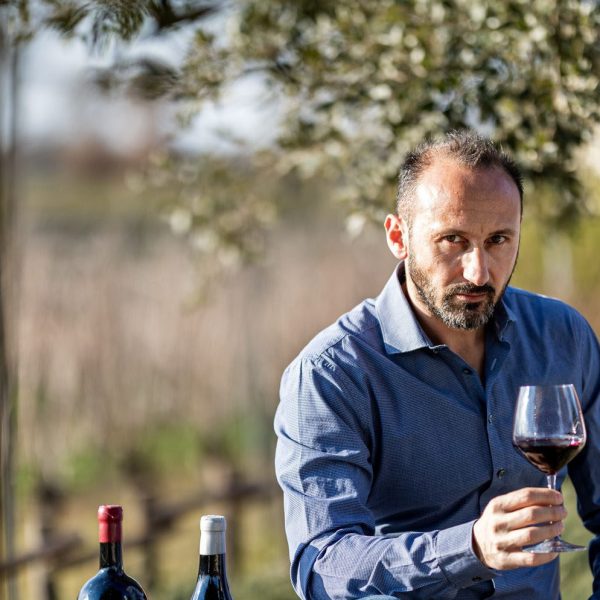Wine
Amerino wine: for an original aesthetic of frugality
Wine and language
To describe the landscape of flavors of Amerino wine, we will try starting from the language. That language that tastes and tastes is in fact the same language that speaks and communicates, highlighting in the act of tasting a genuinely linguistic vocation by virtue of which questions of the palate are continually resolved into questions of speech.
Now, however, when talking about wine, the generic thirst for stories is becoming increasingly stronger than the thirst for language, or (better) for stories with a beautiful language. And so the words about wine, already too often confined to self-referential jargon that is difficult for most people to understand, simultaneously lose eloquence and originality. That is, they renounce that capacity for persuasion stimulated by the attempt to reformulate the personality and energy of the wine, so necessary to communicate the quality of the flavours, to share its emotional temperature; and at the same time they sacrifice the originality of taste in the name of a trivializing typicality.
We will try to counter this tendency, to get “sideways” so to speak. And we will try to integrate the story of the Amerino wines with another language, in search of an originality to be understood certainly not in the sense of extravagance, but rather in the exploratory meaning stimulated by the relationship with an origin, with a place. In the belief that it is not just a matter of making some slight changes to the vocabulary of tasting, but that it is more useful to thoroughly reshape our interpretative sensitivity and develop a different critical perspective.
Frugality of Grechetto
The word “frugal” derives from the Latin frux/frugis (fruit), and is used to indicate sobriety and moderation, establishing the link that those who eat fruit are truly frugal. Upon closer inspection, the Latin term frux does not only mean fruit, but also cereal and harvest in a broad sense, thus transferring a further meaning to the adjective frugal: those who feed on the fruits of the earth strengthen a relationship with the rhythms of production and consume animated by a search for measure in satisfaction, moderation in satisfaction.
The peculiar identity of Amerino wines encourages this attitude. In the sense that it brings into play a repertoire of flavors genuinely inspired by a sober and moderate taste, which relaunch the resources of a frugality that is anything but defeatist. Indeed, on the contrary: a philologically “epicurean” frugality. What else would the φρόνησις (frònesis) so dear to the philosopher from Samos be if not the invitation to put the search for “simple pleasures” at the center of human experience? Emrys Westacott reminds us of this in his Frugality. Stories of the simple life, (Luiss University Press, 2017), going back to Epicurus’ lesson – among the most misunderstood and distorted – to define a profile of frugality that involves an integral and rewarding existence, in which the absence of the superfluous is also simultaneously custody of the necessary and knows how to stimulate the taste for the essential.
Just as in the lifestyle of the frugal person a habitus is affirmed that keeps him away from the excesses of industrial consumption and the seductive glamor of a spectacularized and artificial gourmandise, so also in Amerino wine the original figure of frugality is defined as the opposite of opulence and pomp clashes with luxury and reveals a daily gastronomic vocation that is never a fallback. Not a path of penance, no foreclosure of pleasure, if anything an example of satisfaction “in subtraction”.
Just think of the expressive personality of a Grechetto: certainly not a white wine of particular articulation, nor of accentuated aromatic intensity; even the flavor profile that characterizes it has nothing captivating, much less exotic. On the other hand, it is a “slow release” wine, that is, capable in the versions with more accurate artisanal expertise of maintaining a discreet energy that redeems the apparent neutrality of the first months in the bottle; and over time it favors an unexpected evolution in the register of those notes that refer to the taste of cereals, of the vegetable garden, of the scrub. In short, the quintessence of Mediterranean aromas and flavors, integrated by a fruity component that has nothing to do with the sweet softness of tropical fruit, on the contrary. If anything, it is the taste of the “muntiliona” pear and the Amerina apple that should be recalled by analogy, a taste innervated by a flavor that reveals the complementary function of wine with respect to food, that is to say its nature as a companion at the table and as a through conviviality.
The most evident and significant consequences of such an affirmation of frugal taste are at least two: on the one hand, in opposition to the vulgar spectacularization of wine and food, it is reiterated that in nutrition, as in life, an aesthetic without ethics is a the decerebrate option. And that our ancient food and wine culture is organized around an integrated system, which recognizes Mediterranean frugality as the custodian of a balance triggered by the very precariousness of the peasant world. It is clear how the rediscovery of frugality understood in this way goes hand in hand with the affirmation of the ecological paradigm and the awareness of the limitation of resources. «All expressions of frugality imply the concept that resources are limited: precisely in the lifestyle with limited resources, frugality expresses its existential, social and political reasons» (Valerio Paolo Mosco, Frugalità, Lettera Ventidue, 2022).
On the other hand, the revaluation of frugal taste shows profound connections with some key values of the towns and villages of the Amerino Tipico, first and foremost craftsmanship and slowness. And it fuels a reference to the genius loci that resists the cliché of a typical village festival, the stereotypes of a postcard territoriality. The territoriality of Amerino wine – as well as that of any other production district – can never be assimilated to the banality of an alleged “mirroring”, as we often hear inappropriately. Wine does not reflect a territory, if anything it interprets it, having rather to do with the practices of a “mixture” that hybridizes the elements of the landscape of local flavors and combines them through the practices of a complex savoir faire, which is impossible, as well as profoundly wrong, to assimilate entirely to the model of a technical skill to be transmitted and a protocol to follow.
And it therefore updates its succulent frugality in the name of a dynamic and original territoriality.
Originality of the Ciliegiolo
Here we are introduced as best we could to talk about Ciliegiolo wine. Much has been written in recent years about the relaunch of this carefree, smooth red, long confined to a gregarious and subordinate role. A role given to him in accordance with that orientation of consumers and professionals who tended to give higher rank to red wines with a dense texture, concentrated matter, mature aromas, solid structure and pronounced persistence. Wines that are not at all frugal, obviously, but often just flashy if not exactly unrealistic. And sometimes even tacky.
The critical perspective that has favored the recent recovery of Ciliegiolo is of a completely different nature: a vision that finally stops considering the smooth sphericity and voluminous opulence of wines that are then difficult to drink as an indisputable merit. And he returns to «appreciating simplicity as a resource, not to confuse showy wine with elegant wine, not to naively prefer accumulation to subtraction, not to overestimate the qualities of fullness and intensity, especially if artificially emphasized, slyly alluring and in ultimately predictable.» (A. Castagno, G. Gravina, F. Rizzari, Wines to discover. The recovery of light wines, Giunti, 2017).
Here, compared to so many competition wines that are fatally predictable and boring, Ciliegiolo dell’Amerino reveals its juicy spontaneity without any emphasis as a qualifying element of pleasure. And therefore as a value, no longer as a limit. In this aspect there seems to reside a first distinctive feature of its originality, which reinforces a strong connection with the theme of origin: originating in a production district that has always been oriented towards biodiversity, Ciliegiolo dell’Amerino allows us to appreciate its genuine vitality as one of the happiest and most rewarding expressive qualities.
Let’s take its fruity character for example: it is the flavor of the Morazza cherry (the Nera d’Amelia) that the wine suggests, and certainly not that of the industrial blueberry juice, artificially softened and purged of any harshness; it is the juiciness of the Armascia plum, which stimulates salivation, not the sugary sweetness of the candied cherry, static and monotonous. Thus perceived, the fruity character loses that predictable and uniform trait, which tends to subjugate the pleasantness by concentrating the sensations in the front part of the palate; and is enriched on the other hand with floral nuances, with references to the Mediterranean scrub, to freshly ground pepper. It is no longer the central element of pleasure, but rather one voice among others that animates the expressiveness of wine, stimulates its gustatory dynamics and three-dimensionality.
In the soporific custom with a model of pleasantness that provides only the most obvious and captivating sensations – softness, concentration and sweetness above all – the Ciliegiolo dell’Amerino displays in its most inspired versions the vitality of a fruit that is reappropriated with the interests of a spontaneous wildness. And it turns out to be an exciting wine, which asserts its compelling frankness to convey an unconventional immediacy. And thus to remove the fruity pleasantness from the drift of its artificial domestication, reawakening a vital and contrasted expression, sensitive to the taste for dissonance and ultimately more authentic.
Thus characterized, this peculiar meaning of originality now reveals a new, or at least little explored, profile. Having to simplify, it is about the ability to be amazed by simple things, which even a glass of Ciliegiolo can propitiate. Of course, extractive weight and internal density are not its main resources; but the slender silhouette, the agility of the sip and the smoothness of the gustatory dynamics make it a wine with surprising gastronomic virtues, which supports food pairings with unpredictable versatility, and expresses a luminous and engaging fragrance, a precious ally of drinking and table.
«Question the regular. But, in fact, we are used to it. We don’t question it, it doesn’t question us, it doesn’t seem to constitute a problem, we live it without thinking about it, as if it conveyed neither questions nor answers, as if it contained no information. […] Questioning what seems so evident that we have forgotten its origin.” (Georges Perec, The infra-ordinary, Quodlibet, 2023)
Ciliegiolo dell’Amerino is an “infra-ordinary” wine, precisely in the meaning dear to the writer Georges Perec, who was, so to speak, the inventor of this term. That is, a wine capable of arousing a sort of “creative disorientation” of everyday life, which forces us to explore the simplicity of the sip to discriminate essentiality as a value from the anemic poverty of stimuli, to distinguish the surprising nuances of a “fake” character simple” from the banality of an inexpressive thinness.
And which finally invites us to adopt a critical and questioning attitude, to learn to appreciate the absence of frills as the sign of a deliberate frugality, anything but defeatist or predictable. And to know how to seek in simplicity that primary need to always distinguish, every day, the essential from the superfluous.
Giampaolo Gravina

